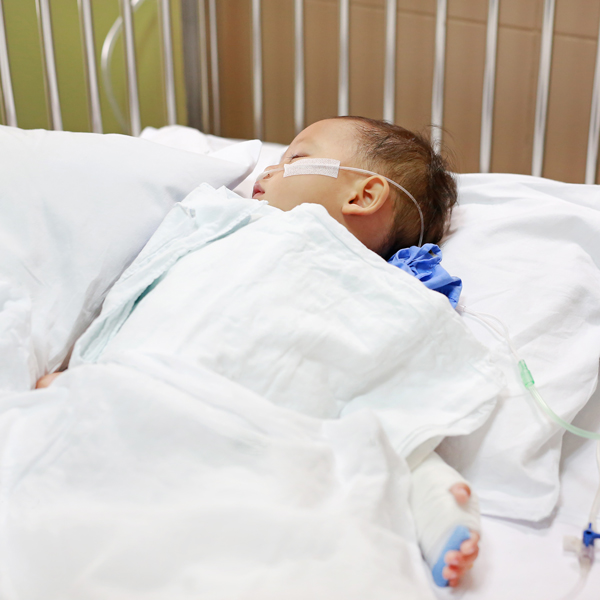Avoiding Newborn Illnesses

Create beautiful baby announcements in a jiffy at Shutterfly/Tiny Prints
You really, really don’t want your newborn to get sick in the first eight or so weeks of life. Not necessarily because, well, you don’t want her to suffer, but more importantly, because you want to avoid a long/expensive/scary trip to the ER.
You see, when newborns (0-8 weeks old, give or take) appear sick (spike a fever, say), medical professionals respond swiftly and seriously — because if something really is wrong, things can deteriorate quickly. All in all, newborns are both more susceptible to germs as well as to being medically intervened upon.
A sick newborn sets in motion a chain of events that all parents want to avoid. But the weird thing is that, compared to parents who gave birth before COVID, you already have a leg up on avoiding illness right now (hopefully).
More on that in a minute, but first, here’s how Dr. Kathleen Pope explains what happens if and when a newborn gets sick (i.e., why you want to prevent that from happening in the first place):
The first two months of life are a high risk time for the more serious kinds of infections. There are some big, bad bacteria and viruses that can infect the child at birth, but don’t start showing symptoms until up to seven-eight weeks after delivery.
Newborns don’t run fevers as quickly or easily as an older child, in general, so seeing a fever in a young infant is a red flag that there could be something more serious going on than, say, a cold virus.
This is why when your little one (under two months old) has a fever over 100.4 F (38 C) it’s considered an emergency. The child needs to be seen right away (usually in the ER), to be tested for more severe infections such as blood infection (sepsis), urinary tract infection, or meningitis.”
At this age, the standard of care for a fever is a full ‘rule-out-sepsis,’ as we call it in the pediatrics world, even if the child is well-appearing. This includes checking blood, urine, and spinal fluid. This also includes the dreaded spinal tap, which I know strikes fear in the heart of every parent.
Thankfully, they are not that technically difficult and certainly not as “dangerous” as most parents imagine they must be. I performed a spinal tap just about every ER shift I worked in this age group of infants.
In addition to sending cultures for bacteria from blood, urine, and spinal fluid, a child under eight weeks with a fever will be admitted to the hospital for 48 hours of intravenous (IV) antibiotics until the cultures are negative for 48 hours. In the event that a bacteria grows in the culture, this generally means a longer course of IV antibiotics and longer hospital stay.
Even though any parent who has to go through this is going to feel like the world is ending and their worst nightmares have come true, the “rule-out-sepsis-admission” is extremely commonplace in pediatrics. At any given moment there is at least one and probably more than one infant admitted to pretty much any pediatrics unit in any hospital in the country for this reason. It is only after the 48 hours of the culture not-growing-anything-of-concern that the declaration “the fever is probably just due to a cold virus” can be made for a child under two months old.
And everyone can finally breathe a sigh of relief.
Playing it Safe
Here’s the scenario: you bring your newborn to a family BBQ where Uncle Joe has a cold. No big deal, right? Well, if she happens to pick up Uncle Joe’s cold and if she then happens to run a fever (under eight weeks old), guess what? Yup… the aforementioned 48-hour rule-out-sepsis workup.
EVEN IF YOU ARE POSITIVE that it’s just Uncle Joe’s cold, this is what needs to happen to be sure.
Not cool.
To Summarize
Keep your babe away from large crowds of people during the first two months, especially in the winter months when colds and flus are running rampant.
In the summer months? It’s not nearly as much of an issue because people are generally healthy.
Also, insist that everyone wash their hands thoroughly before handling your baby (I know, I know, you’ll feel like a complete d’bag by saying that to everyone, but it’s important).
Some new parents find it helpful to post a sign at the door to remind visitors to wash their hands before holding the baby, especially during the winter months.
That said, it’s not the end of the world for your newborn to get sick. Please don’t feel like you have to hole-up the whole family in your house. It’s important to get out. Just try to avoid large, dense gatherings (airplanes, parties, and such), especially when other young germ factories (uh, I mean “kids”) are present.
I mean, shoot, once you have your second or third child, your baby will certainly be around your older preschool-virus-infested children. Newborns will get colds from your older kids and… what are you gonna do.
I remember taking Lucie out to dinner with us when she was about a month old. An older kid came over to admire her in the stroller, then sneezed RIGHT on top of her. I totally flipped out (on the inside).
When you have your 2nd (or more) kid, that kinda stuff won’t even phase you. You’ll be like, “OH well.” LOL.
That’s all for now! Remember to be good to yourself; you’re still right in the thick of adjusting to this new life.
Related:
- Looking for an infant care book? I recommend: The Baby Care Book: A Complete Guide from Birth to 12 Months Old
- Essential baby meds
- Blocked Ducts, Mastitis and Thrush: The 3 Big Nasties of Nursing
- Finding the Right Breast Pump
Enough baby stuff? Read Why the male anglerfish gets completely screwed.